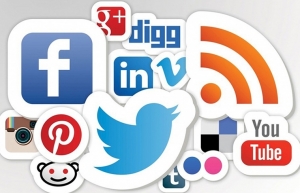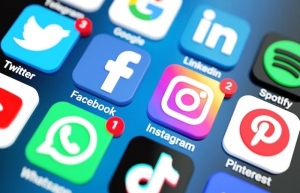Vietnam leads Meta's Business Messaging in the region
 |
What potential do you see in Vietnam for Business Messaging?
About six or seven years ago, we saw that businesses in Southeast Asia, especially Thailand, and Vietnam, were using messaging. Our team took a trip down here, and we talked to a bunch of businesses, and we recognised so much commerce and so much conversation was happening on our Messenger app. So, that gave us an idea for what we call click-to-message ads.
If you click on an ad, it starts a chat conversation on Messenger, not a website or forum. Over the last six years, we have been building that along with Business Messaging tools, and now Business Messenger is a $10 billion business. We started by trying to enable small- and medium-sized enterprises (SMEs). Over time, we started to build more complicated tools for mid to large-sized companies as well. But at the heart of it, SMEs are our primary audience.
What are the benefits for both people and businesses when using Business Messaging?
First, we make it easy for people to contact businesses. You can message a business or scan a QR code to start a conversation with the business. Click-to-message ads make it easy to start conversations with businesses.
Second, we give businesses the tools to respond to these messages effortlessly. If you use the Messenger app on your phone, you can toggle between personal and Business Messenger. We build inboxes, for Messenger, Instagram, and WhatsApp. We also have an inbox called Unified Inbox in Meta Business Suite for slightly more complicated businesses.
The third thing is we have what we call messaging APIs for partners. Imagine your small business, which is using a company to build e-commerce websites and manage your inventory. If someone is messaging you and asking you whether you have a product, our APIs connect with the tool you are using to manage your business to send a message from that tool itself.
And one more thing we do is try to make messaging valuable so that people and businesses can drive sales, generate leads, and drive outcomes that they care about. We build capabilities inside the messaging thread including checkout, payments, security, scalability, and everything else we need. So that way, you do not need to send someone to some other channel, you can achieve whatever you want inside the app itself.
What is Meta's vision for Business Messaging solutions for the near future?
Overall, our vision is to make sure that messaging thread is a powerful end-to-end solution for businesses. One of our prominent partners in Vietnam is Haravan which supports businesses in handling their inventory and can enable payments within the messaging thread. They have payment solutions that are built on top of messaging so that they will be able to send you a link with which you can pay, and they will be able to send you a receipt. That end-to-end experience exists.
Our vision is to bring in a better payment checkout catalogue over time. We believe that this is not only going to help you drive sales as a business better, but also help you build better trust and relationships with the person because it's a one-to-one connection.
How do you see Business Messaging outperforming traditional channels?
We recently launched what we call Marketing Messages. Initially, when you click on an ad, you start a message. But now there is the ability for businesses to re-engage customers with just a messaging notification. Its efficiency is between 50 and 60 per cent better than email and SMS in terms of open rate and conversion. However, we do not want to spam people and ruin the messaging channel. Businesses need to opt in to receive these messages, and they can easily opt out whenever they want. But approximately 84 to 85 per cent of people ended up opting in to receive the extra messages.
As a consumer, if I want to book a test drive, BMW or whoever then follow up with me and say “Hey, your test drive is tomorrow.” Or if I bought some cool shoes from Nike, then if a new design of shoe comes out, I'd love for them to be able to message me back and tell me that new shoes are coming out.
Do you have any competition in Business Messaging in Vietnam?
We see ourselves as a platform. We are enabling all of these companies who are using business messaging. If I had to think about our competitors, it would be email, SMS, and phones because these are the different legacy communication channels. Most of the companies that you can think of, we would consider as partners. We can work with them and continue to grow our messaging service.
Could you share Meta's plan for the Vietnamese market?
Roughly 40 per cent of all the advertisers in Vietnam are using Meta, with 80-90 per cent of them using Click-to-message ads. At least one in three people say that they message a business each week, according to our study with Boston Consulting Group. We are excited about the market here in Vietnam.
 | Facebook and Google to face new rules on cross-border ads services from September Vietnam will tighten control over cross-border platforms providing advertisement services like Facebook and Google under new rules taking effect from September 15. |
 | E-commerce sales in Vietnam expected to reach $56 billion in next five years Vietnam is expected to experience a significant increase in e-commerce sales from $12 billion in 2021 to $56 billion in 2026, according to an annual report by Facebook Inc. and Bain & Co. |
 | Facebook tweaks app with eye on rival TikTok Facebook has split the news feed in two on its app, a signficant change that mimics the experience on its fiercest competitor, hugely-popular TikTok. |
What the stars mean:
★ Poor ★ ★ Promising ★★★ Good ★★★★ Very good ★★★★★ Exceptional
Latest News
More News
- Agentic AI set to reshape Vietnam’s enterprise landscape (February 10, 2026 | 12:06)
- Agro-forestry and fisheries exports jump nearly 30 per cent in January (February 09, 2026 | 17:45)
- Canada trade minister to visit Vietnam and Singapore (February 09, 2026 | 17:37)
- New tax incentives to benefit startups and SMEs (February 09, 2026 | 17:27)
- Vietnam forest protection initiative launched (February 07, 2026 | 09:00)
- China buys $1.5bn of Vietnam farm produce in early 2026 (February 06, 2026 | 20:00)
- Vietnam-South Africa strategic partnership boosts business links (February 06, 2026 | 13:28)
- Mondelez Kinh Do renews the spirit of togetherness (February 06, 2026 | 09:35)
- Seafood exports rise in January (February 05, 2026 | 17:31)
- Accelerating digitalisation of air traffic services in Vietnam (February 05, 2026 | 17:30)















 Mobile Version
Mobile Version